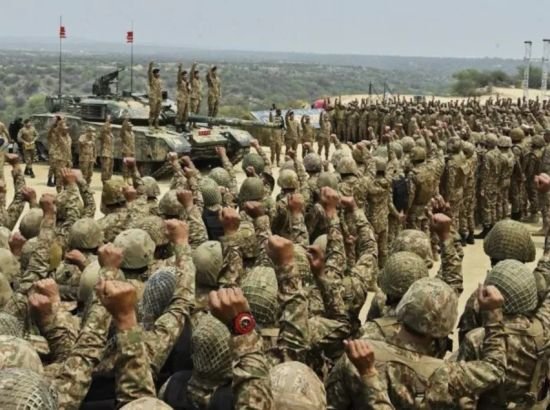
Terrorists strike military convoy with explosive-laden car on Karachi-Quetta highway
In a major blow to Pakistan’s internal security, 32 soldiers were killed when an army convoy was targeted with an improvised explosive device (IED) near Khuzdar, along the Karachi-Quetta highway. The attack, carried out using an explosive-laden parked car, injured dozens more.
According to local media, the convoy consisted of eight military vehicles. At least three of them were directly damaged by the blast. Among the affected were transport buses carrying army personnel and their families. The location of the blast and the scale of the damage have left the region in shock.
The attack indicates a dangerous shift in terrorism patterns in Pakistan. While remote areas like Balochistan have long been hotspots for such violence, major cities like Karachi are now becoming active targets. This has significantly heightened public anxiety and raised questions about the effectiveness of national security measures.
Initial reports suggest that the perpetrators planted the IED in a parked vehicle. Upon detonation, the explosion tore through the convoy as it moved along the busy highway. Some eyewitnesses claim that a military school bus may have also been hit.
Security officials on the ground have reportedly attempted to control the narrative. They are allegedly linking the incident to a prior attack involving a school bus to mask the full extent of the military losses. This has led to public outcry, especially in light of a similar attack just days earlier.
On May 21, armed militants targeted a school bus of the Army Public School on the same highway, near Quetta. That attack claimed five lives, including the bus driver, and left children traumatized. The consecutive nature of these assaults has amplified public fear.
Despite the tragedy, the top brass of Pakistan’s military appears unfazed. Chief of Army Staff General Asim Munir hosted a lavish dinner party attended by Prime Minister Shehbaz Sharif, President Asif Ali Zardari, and PPP leader Bilawal Bhutto. The timing of the gathering, which occurred just hours after the deadly attack, has sparked criticism.
Prime Minister Sharif is also set to begin a diplomatic tour of four countries — Turkey, Iran, Azerbaijan, and Tajikistan — where he is expected to present Pakistan’s stance on rising tensions with India. However, the internal crisis back home threatens to overshadow his foreign agenda.
This deadly blast underscores Pakistan’s deteriorating security situation, especially in Balochistan and adjoining regions. The scale and location of the attack indicate that terrorist groups are becoming more organized and emboldened. As military operations increase in these areas, further escalation cannot be ruled out.